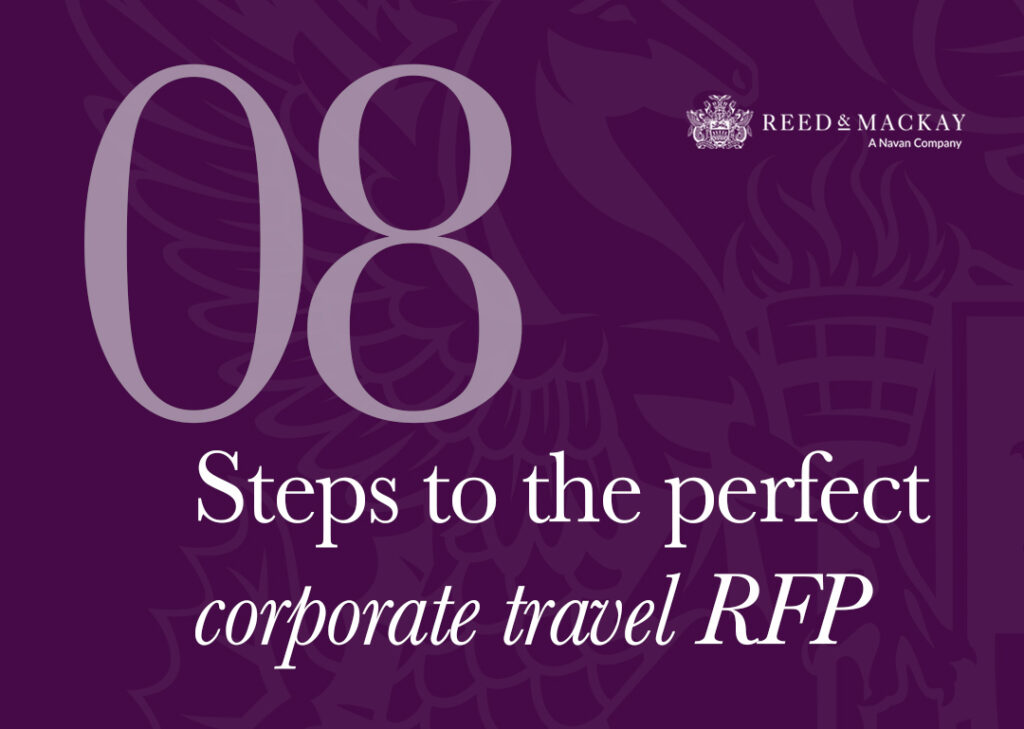Looking for a travel management company (TMC) to manage your corporate travel programme?
Read these top tips on how to run a successful travel management RFP.
- Consider the end-to-end process
If you already have a contract in place with a TMC, find out when it expires and work back from there. Assess how much of your own time you’ll need to allocate to the project, decide the other stakeholders who need to be involved – leadership, travellers and travel bookers as well as HR, risk, sustainability and finance – and their availability. - Be clear in what you want to solve
Identify your business travel pain points with the key stakeholders, then decide the challenges you want to solve and the main aims of the RFP exercise. Different colleagues and departments may have different objectives. It’s important to have one view of what you want to achieve and use this as your guiding star. - Be ready to share detailed information
Gather as much information on your current travel programme and TMC prior to issuing the RFP. Important items to outline within the RFP pack include:- – What’s working and what’s not in your current travel programme, plus your main priorities
- – How your incumbent TMC services the account
- – Your travel and expense policy
- – Travel programme data, including current travel volumes and transaction numbers for all markets in scope
- – Online tools and related adoption levels
- – Any systems requiring integration such as expense management or HR systems/feeds.
Be generous with this information as it will provide potential TMCs with more insight into your organisation, your needs and whether they would be a good fit.
- Establish who to invite
The more TMCs you invite, the more responses you will have to review and the longer this stage will take. Invite five or fewer companies to RFP – this will allow you to review a range of suppliers yet keep the workload manageable. Look for TMCs that provide a distinctive offering and are relevant to your business and your short- and long-term goals. Industry guides and associations are a useful starting point to shortlist TMCs. - Ask the right questions for your business
While your business may have an RFP used for procuring other goods and services, corporate travel is complex and emotive; it’s important to tailor the questions to travel. Likewise, don’t reissue the same template you’ve used for the last 10 years. The world and travel have changed, so will what your business needs from a TMC.
Concentrate on the questions that relate to your top travel priorities and requirements. Between 30-60 questions should be sufficient. Remember, the more questions you ask, the more you will have to read, review and compare.
Consider how you’re wording the questions. Are they being a phrased in a way that will elicit the most important information? Where possible, ask open and strategic questions to encourage bespoke responses and show how the provider will approach the partnership.
And ask about the TMCs’ company culture and values to determine how you’ll work together and whether your businesses will align. - Compare pricing fairly
Always provide a pricing template to help compare like for like in pricing and financials. Comprehensive templates encourage the responder to be clear in what they’re offering, make reviewing easier and provide visibility to offers side-by-side. - Set reasonable timelines for supplier response
Tenders are, by nature, complex and TMCs will require internal meetings to produce the most appropriate solution, particularly for complex, larger or international bids.
Three to four weeks for a bid response timeline is reasonable. You’ll want to receive the best propositions and this isn’t possible with restrictive timelines. And, within this part of the process, allow your suppliers to ask clarification questions and factor in time to respond. - Review responses and establish next steps
Now the responses are back, give yourself and the key stakeholders enough time to fully review the submissions. Depending on the number of TMCs invited and the questions asked, it can take several weeks to properly assess, compare and score tenders.
The next step is shortlisting and organising the presentation stage. So consider whether a workshop would work better than a traditional presentation. This can help you truly see each TMC’s strengths, weaknesses and their culture.





